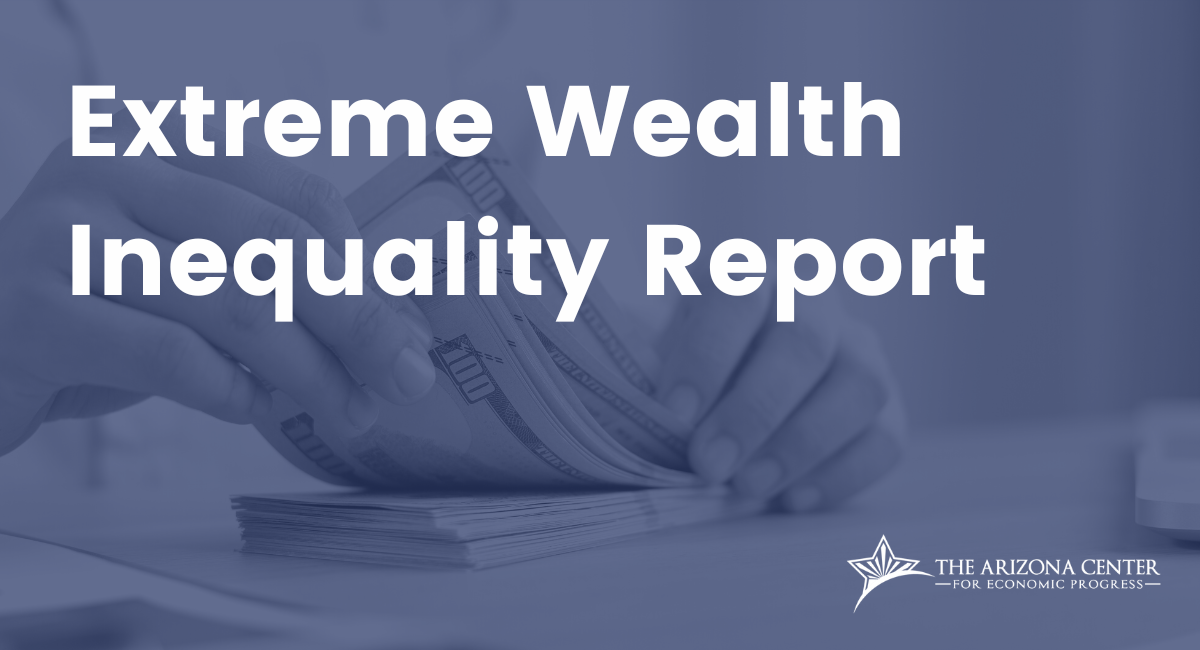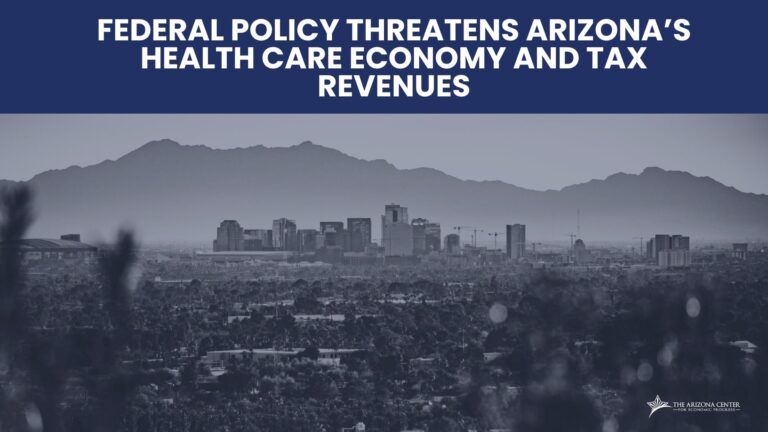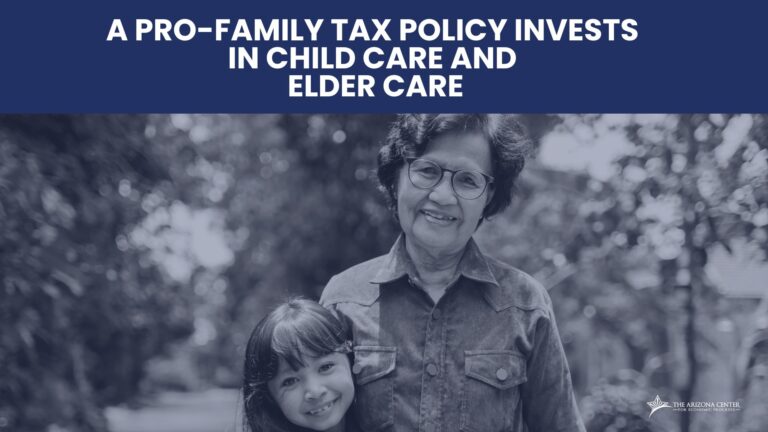
Extreme Wealth Inequality
Less than 0.2% of Arizona Hold Nearly $500 Billion in Wealth
According to a new report by our partner Institute on Taxation and Economic Policy (ITEP) a small fraction of Arizonan families holds more than $500 billion in wealth. ITEP’s new 50-state report highlights wealth inequality and demonstrates how extreme wealth holding limits economic opportunities for everyday Arizonans, and both reflects and exacerbates racial inequality.
The Geographic Distribution of Extreme Wealth in the U.S. report highlights:
- A nationwide tax of 2% on wealth over $30 million could have raised nearly $415 billion if it were in effect this year, including over $5 billion from extremely wealthy Arizonans. This tax would affect just 2 in 1,000 households in Arizona, or 0.2 percent of the population.
- Racial inequality is even more pronounced among the extreme wealthy – ninety-two percent of extreme wealth is owned by white, non-Hispanic families.
- A large share of Arizona’s extreme wealth – 39 percent – is held in the form of unrealized capital gains, meaning investment income on which these families have yet to pay tax (and may never pay tax under current law). Nationally, this share is 43 percent.
- A tax on the stock of unrealized gains in 2022 could be expected to raise between $529 billion and $3.9 trillion, nationally, depending on the tax rate chosen and the percentage of gains deemed to be realized.
- Nationally, a one-time tax on the current stock of unrealized capital gains over $10 million per household could generate between $529 billion and $3.9 trillion depending on the tax rate. This includes between $6 million and $42 million from extremely wealthy Arizonans.
Today, federal and state tax codes barely tax extreme wealth, and Arizona’s tax system is overwhelmingly regressive – meaning Arizonans lowest income earners pay a larger share of their income in taxes. Last year, the Arizona legislature replaced the graduated individual income tax with a flat tax, making what was already a regressive tax code even more regressive. When it comes to wealth, our tax code is even more lopsided. Policymakers seeking to fix the imbalance in Arizona's tax codes and begin to address the growing wealth inequality can begin by:
- Adopting state laws that eliminate tax preferences that make tax rates on realized capital gains lower than on income from work
- Creating an inheritance or estate tax on extreme wealth passed on to heirs
- Creating a state wealth tax
- In Arizona, repealing the flat income tax and reversing back to a graduated income tax rate system
- Closing tax loopholes and tax credits and creating more oversight and accountability measures
- Requiring multistate corporations to pay what they owe and strengthening taxation on corporate profits
Real full report here



